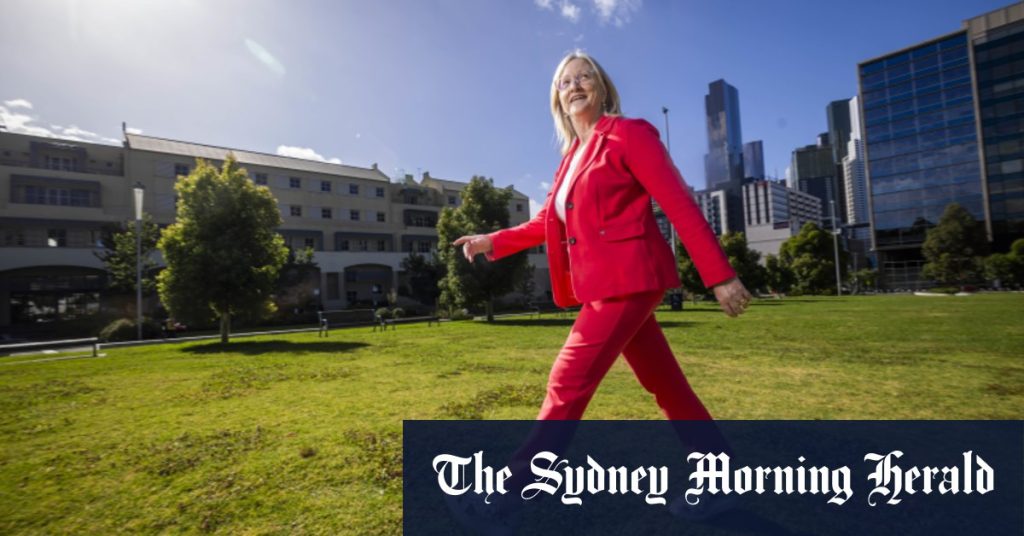Professor Jane Gunn emphasizes the importance of regular exercise for both physical and mental well-being, acknowledging the complex and often poorly understood link between gut health and brain function. While she advocates for a healthy lifestyle, she recognizes the common struggle of applying these principles consistently. Her approach focuses on finding enjoyable activities, such as her self-coined “wunning,” a combination of walking and running. She highlights the benefits of incidental exercise, like walking more, stressing that significant health gains can be achieved without resorting to overly scientific or rigorous training regimes that can often be demotivating. Mindfulness practices, particularly through yoga, are also integral to her routine, serving as a means to connect mind and body while promoting flexibility and mental stillness.
Professor Stephen Nicholls echoes the importance of exercise, particularly brisk walking and jogging, to clear his mind. He acknowledges the difficulties of maintaining a healthy diet amidst a demanding work schedule but strives to eat better and less. Recognizing the crucial role of sleep in cognitive function, he aims for longer periods of rest despite the challenges posed by his globally connected work. He combats stress by focusing on the bigger picture, delegating tasks, and fostering the success of his colleagues. Maintaining personal connections with friends and family, focusing on non-work-related conversations, provides further balance. He cautions against the prevalent misinformation and declining trust in science regarding health advice, stressing the need for clear, tailored communication. He advocates for knowing one’s cholesterol and blood pressure numbers, and consulting with a GP for personalized advice, especially for those with existing heart conditions or heightened risk factors. Regular flu vaccinations are also recommended for this group.
Professor Patrick McGorry credits his lifelong engagement in team sports and surfing with instilling a disciplined approach to fitness. Surfing, a significant part of his identity, has been a driving force to maintain physical health. He’s adopted other activities like skiing and snowboarding, incorporating them into his routine. While acknowledging the demands of his workload sometimes hinder his ideal fitness levels, he maintains a regimen of gym visits, regular surfing, biking, and walking. He underlines the positive impact of long walking holidays, like the Camino de Santiago, on overall well-being. Exercise, particularly vigorous exercise, serves as a vital coping mechanism for stress and anxiety reduction. He emphasizes the interconnectedness of physical and mental health, believing his active lifestyle contributes to managing his mild hypertension. He acknowledges that while his diet isn’t perfect, he believes in the importance of a balanced approach, favoring protein over carbohydrates, and acknowledging the health benefits of a Mediterranean diet. His sense of purpose derived from work, along with connections to family, friends, and nature, provide essential protective factors for his mental health.
Dr. Jill Tomlinson employs strategic approaches to ensure a healthy lifestyle. A regular vegetable box delivery helps her maintain a consistent intake of five servings of vegetables daily. Prepping these vegetables upon arrival and exploring new recipes ensures their consumption. Maintaining hydration is also a priority, particularly challenging while working and breastfeeding. Gardening serves as a vital component of her mental health routine, providing a connection to nature while offering the reward of fresh produce. She champions the benefits of running, an activity she finds joyful and a reminder of her physical abilities. Having witnessed the impact of melanoma in her family, sun safety is a key priority for herself and her children. Preventative healthcare is paramount, demonstrated through regular visits to her GP and dentist and receiving annual flu vaccinations.
These health professionals demonstrate that maintaining a healthy lifestyle isn’t a one-size-fits-all approach but rather a personalized journey. Each individual highlights different strategies that work for them, underscoring the importance of finding activities that are both beneficial and enjoyable. They all emphasize the interconnectedness of physical and mental well-being, advocating for regular exercise, mindfulness practices, healthy eating habits, and the importance of preventative care.
Furthermore, they recognize the challenges of maintaining healthy habits amidst busy schedules and the constant barrage of often conflicting health information. The recurring theme of finding sustainable practices tailored to individual needs and preferences emerges as crucial for long-term health and well-being. Consulting with healthcare professionals for personalized advice is also presented as an essential step, particularly in navigating the overwhelming amount of information available and addressing specific health concerns. The emphasis on preventative care underscores the proactive approach each individual takes towards their health, highlighting the importance of regular check-ups, vaccinations, and addressing known risk factors.

